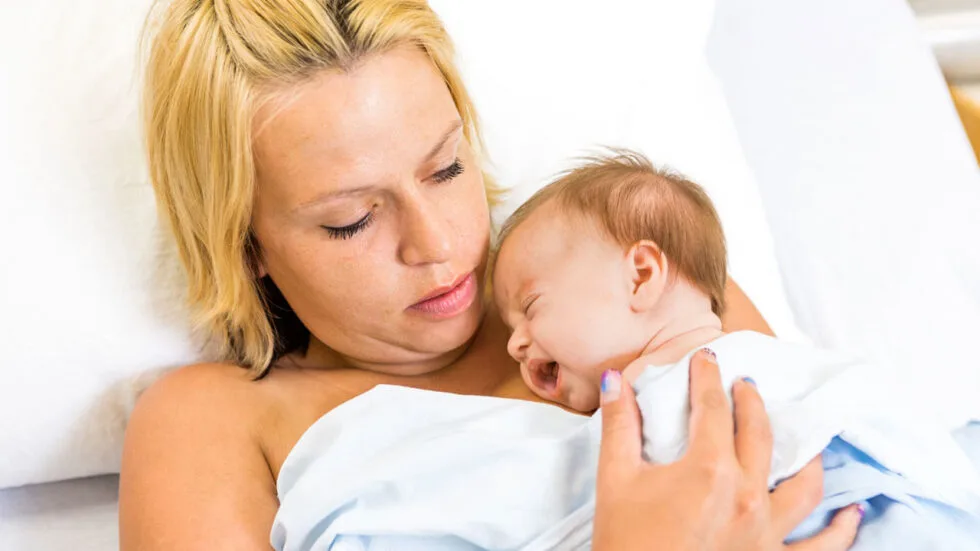Post-partum is as real as it can get, although becoming a mom is completely a life altering experience. From the moment of conception, to the whole duration of pregnancy and up to the time of birth is indeed a lot to take specially if you are a first-time mom. After having a baby, many women have mood swings. It is because they face a lot of challenges getting used to life with a newborn. Some of the challenges includes lack of sleep, new responsibilities, or even breast pain when nursing. These can trigger a jumble of powerful emotions, from excitement and joy to fear and anxiety. It’s like one minute they feel happy, the next minute they start to cry. They may also feel a little depressed, have a hard time concentrating, irritable, feeling overwhelmed or even lose their appetite. Most of these symptoms leads to what we call baby blues or post-partum depression.
Baby blues are considered normal part of early motherhood and usually go away within 10 days after delivery. However, some women have worse symptoms or symptoms last longer which now leads to “post-partum depression”. The diagnosis of post-partum depression is based not only on the length of time between delivery and onset, but also on the severity of the depression. Post-partum depression is a complex mix of physical, emotional, and behavioural changes that happen in a woman after giving birth. The chemical changes involve a rapid drop in hormones after delivery. The actual link between this drop and depression is still not clear. But what is known is that the levels of estrogen and progesterone, the female reproductive hormones, increased tenfold during pregnancy. Then, they drop sharply after delivery. By three days after a woman gives birth, the levels of these hormones drop back to what they were before she got pregnant.
Post-partum
Post-partum depression isn’t a character flaw or a weakness. Sometimes it’s simply a complication of giving birth. It is considered as an illness (like diabetes or heart disease), which can be treated with therapy, support networks and medicines such as antidepressants. Some women are more at risk for post-partum depression if they experience the following: personal or family history of depression or another mental illness (considered as the largest overall risk factor), lack of support from family and friends, anxiety or negative feelings about the pregnancy, problems with a previous pregnancy or birth, marriage or money problems, pregnancy at a young age, substance use disorders, family violence, chronic illness, severe premenstrual syndrome (PMS).
There are effective treatments for post-partum depression. Most often, treatment will include talk therapy or at times some combination of antidepressant medication, talk therapy, and supportive community resources. Many women do not seek treatment despite their effectiveness because they are reluctant to tell someone when they feel this way. Some are hesitant specifically when considering antidepressant medications out of concern for any health risk they pose to their baby. But postpartum depression is a medical condition that requires attention and treatment. It is important to discuss any concerns carefully with your doctor. Screening for depression once during your pregnancy and at 1, 2, 4, and 6 months after pregnancy should be a routine part of yours and your baby’s health care. Health care professionals, such as your doctor, your baby’s doctor, a nurse, or other health care provider are familiar with the types of depression new and expectant mothers face. They know ways to help and can explain your options to you. They are ready to listen to you and can put you on the road to recovery.
It’s important to call your doctor as soon as possible if the signs and symptoms of depression have any of these features: Don’t fade after two weeks; are getting worse; make it hard for you to care for your baby; make it hard to complete everyday tasks; include thoughts of harming yourself or your baby. if you have suicidal thoughts or if at any point you have thoughts of harming yourself or your baby, immediately seek help from your partner or loved ones in taking care of your baby. You may also consider these options if you’re having suicidal thoughts: Seek help from your primary care provider or other health care professional.
Remember any woman may become depressed during pregnancy or after having a baby. It doesn’t mean you are a bad or “not together” mom. In fact, getting treatment and support helps you care for your baby. You and your baby don’t have to suffer. There is help available. All children deserve the chance to have a healthy mom. And all moms deserve the chance to enjoy their life and their children. If you are feeling depressed during pregnancy or after having a baby, don’t suffer alone. Please tell a loved one and call your doctor right away. You can also seek assistance through our women’s health PT champion, Dr. Monica Saliu, PT, DPT. Send us an email today.



